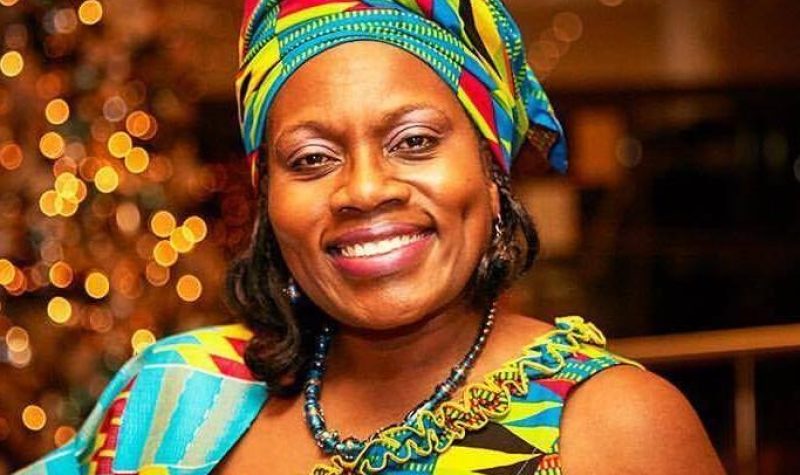Editor's Note: Onyango hosts Black on Black on Saturdays at 11 am on CHUO 89.1 FM.
Sarah Onyango has been a leader in Ottawa’s community television and radio scene since the 1990s.
Onyango is the recipient of numerous awards, including the Queen Elizabeth II Diamond Jubilee Medal in 2012 and the Ontario Black History Society’s Mathieu Da Costa Award in 2016. Her impact on local media and Ottawa’s Black and Afro-Caribbean communities earned her a spot on the list of 100 Accomplished Black Canadian Women in 2018.
Born in Nairobi, Kenya, Onyango came to Canada with her family when her diplomat father was posted in 1980. She earned a BA in translation at the University of Ottawa, where she got her first taste of community media.
“My original foray into community media was working with the African Students Association, back in the day,” says Onyango. “Ironically, with a man who would later become my colleague here at the parliamentary channel.”
After visiting her childhood home of Kenya, Onyango travelled to France to obtain a Master’s degree in linguistics at the Université de Franche-Comté. In 1992, she returned to Canada with her husband, a Canadian, who she met while studying.
They moved to Gatineau, where Onyango recalls living in an almost exclusively white neighbourhood.
“The only Black person I would see for days on end would be our neighbour,” says Onyango. “But she moved away a few months after we moved in.”
Onyango had close friends from high school and university who lived across the bridge, in Ottawa, but she didn’t see them very much because of the distance. Disconnected from her community, Onyango began to feel isolated and alone.
“Imagine you've lived for several years in a majority-Black country,” says Onyango. “Then… you live in an environment where most of the people around you are Black people, or interracial, Black-white couples. Then you move into a neighbourhood where basically, all you see is white people.”
Onyango went in search of Ottawa-Gatineau’s Black community, and found the Harambe Centre, where she began to write for their community newspaper The Drum.
In order to get the right angle for her stories, Onyango had to take a “boots-on-the-ground” approach. This led her to discover Black History Ottawa, where she started volunteering around 1993.
“I still volunteer for Black History Ottawa,” says Onyango. “When I like a place or a group of people, I just tend to stay there. And that sort of started my whole interest in really exploring further opportunities.”
Around the time of her divorce, Onyango started listening to CHUO’s weekend show Black on Black—one of Ottawa’s longest-running English-language programs devoted to Black and Afro-Caribbean audiences.
“I noticed that there were no accents that sounded African,” says Onyango. “And the coverage of the continental-African part of this Black community was not really reflected as much. It was very Caribbean-dominated.”
Onyango, who had forged strong connections with the local African community, called the station and volunteered to lend her talents.
The crew at the time met with Onyango at a diner on Elgin St., where they auditioned her as a host. It wasn’t long before she got a call-back.
“I think it was two weeks later,” says Onyango. “They were like, ‘Okay, Ms. Thing, baptism by fire, let's go.’ And this was when we still had reel-to-reel, and cards, and everything's manual.”
As Ottawa’s Black and Afro-Caribbean population grew, Black on Black became a trusted source for news about current-events affecting the Black community both in Ottawa and continental-Africa.
Onyango recalls that during the Rwandan genocide of 1994, western mainstream news outlets provided little coverage of events that left hundreds of thousands dead and created two million refugees. Her relationship with the local African community prompted compelling coverage of people in Ottawa and Rwanda whose lives and families were affected by the violence.
“That's what I do,” says Onyango. “I use my contacts, my connections and my credibility in the continental-African community to get interviews like that.”
As a long-time Ottawa resident and active member of the community TV and radio scene, Onyango has watched the city’s socio-cultural landscape change throughout the years.
She says the composition of Ottawa’s Black and Afro-Caribbean community has expanded to reflect the diversity of continental-Africa.
“I remember when we arrived, the Caribbean population was huge,” says Onyango. “And then by the time I came back, the Somali community had appeared, and Black Muslims became more visible. The Black-Francophone community has grown tremendously as well.”
Onyango notes that relationships between various Black and Afro-Caribbean ethno-cultural groups in Ottawa have been historically complex, and sometimes strained. She says this presented difficulties for the community as a whole when it came to organizing politically.
“For example, continental-African community X-Y-Z may not feel concerned with issues they feel are a Caribbean problem,” says Onyango. “I used to hear that. But when the continental-African communities started realizing that anti-Black racism and police violence doesn't care about your accent, the passport of your country of origin or anything like that, it was sort of a wake-up call.”
Onyango says the unification of Black and Afro-Caribbean communities has led to the creation of organizations such as the African Canadian Association of Ottawa, which brings together community leaders from both sides of the river in the interest of socio-cultural well-being.
As someone who has helped shape the standard for media coverage of Black and Afro-Caribbean folks in Canada, Onyango wants to remind people that Black history should be celebrated on a daily basis.
“Black history is being made every day, all day, all month, all year,” says Onyango. “You don't have to be doing anything brilliant to be helping build Canada into a better country. Paying your taxes, raising your family, volunteering in your community, and being a good citizen. That’s contributing.”
Listen to the CHUO News update below:


